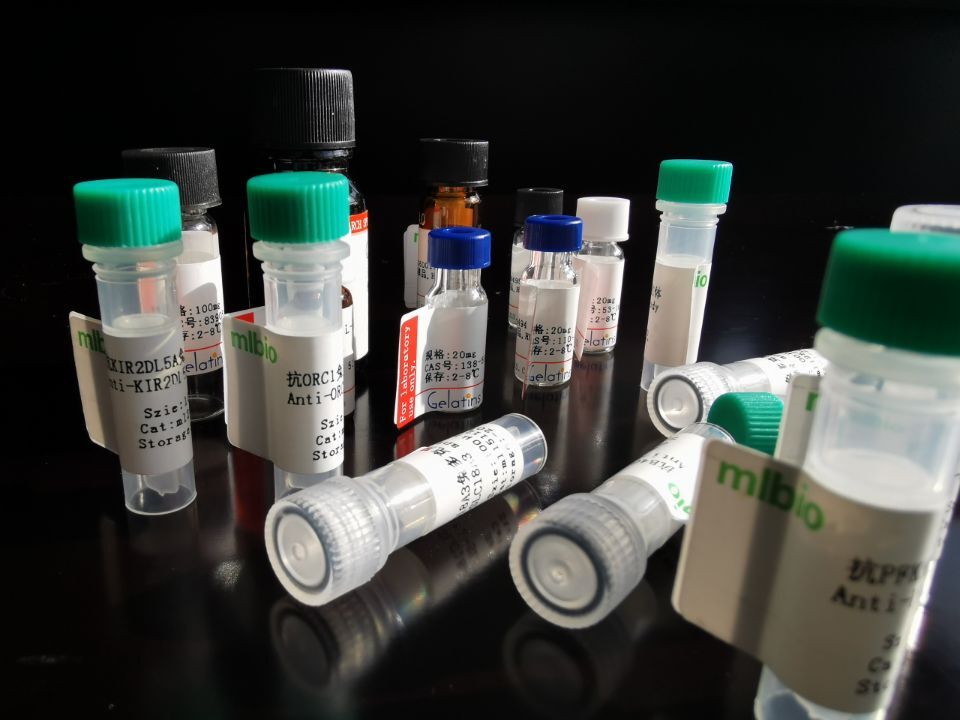|
Fusion protein corresponding to C terminal 200 amino acids of human FGFR1 |
技術(shù)規(guī)格
|
Full name: |
fibroblast growth factor receptor 1 |
|
Synonyms: |
CEK, FLG, HH2, OGD, FLT2, KAL2, BFGFR, CD331, FGFBR, FLT-2, HBGFR, N-SAM, FGFR-1, bFGF-R-1 |
|
Swissprot: |
P11362 |
|
Gene Accession: |
BC015035 |
|
Purity: |
>85%, as determined by Coomassie blue stained SDS-PAGE |
|
Expression system: |
Escherichia coli |
|
Tags: |
His tag C-Terminus, GST tag N-Terminus |
|
Background: |
The protein encoded by this gene is a member of the fibroblast growth factor receptor (FGFR) family, where amino acid sequence is highly conserved between members and throughout evolution. FGFR family members differ from one another in their ligand affinities and tissue distribution. A full-length representative protein consists of an extracellular region, composed of three immunoglobulin-like domains, a single hydrophobic membrane-spanning segment and a cytoplasmic tyrosine kinase domain. The extracellular portion of the protein interacts with fibroblast growth factors, setting in motion a cascade of downstream signals, ultimately influencing mitogenesis and differentiation. This particular family member binds both acidic and basic fibroblast growth factors and is involved in limb induction. Mutations in this gene have been associated with Pfeiffer syndrome, Jackson-Weiss syndrome, Antley-Bixler syndrome, osteoglophonic dysplasia, and autosomal dominant Kallmann syndrome 2. Chromosomal aberrations involving this gene are associated with stem cell myeloproliferative disorder and stem cell leukemia lymphoma syndrome. Alternatively spliced variants which encode different protein isoforms have been described; however, not all variants have been fully characterized. |
 購物車
購物車 幫助
幫助
 021-54845833/15800441009
021-54845833/15800441009
